A Christian mentor of mine once gently told me, “you know, I don’t think frugality is going to be a very high value in the kingdom of God.”
I was shocked. As the son of two Christian, immigrant parents, being thrifty and saving money had always been the highest virtue. Price and value were always at the top of our considerations. From groceries, to clothes, to vacations… you name it, I was used to saving wherever we could.
On top of all that, Jesus taught that the love of money is the root of all evil. So as Christians, I reasoned, shouldn’t we all strive to live as simply and frugally as we are able?
Asians and Frugal Living
If you’re new to the blog, keep in mind that I speak directly out of my own experiences. The question, “should Christians be as frugal as possible?” is only answerable within my own context. And since being Christian and Asian American is the identity I’m processing in this blog, that’s where I’ll be starting from.
I was always taught to be thrifty and responsible with my money growing up. To save wherever I could. In short, we were a typical frugal Chinese family.
So what does being frugal as an Asian American Christian look like? For me (and maybe others can relate), frugal asian living may look like:

- Price comparing everything before you are willing to buy anything. And then looking for a coupon before you checkout.
- Never leaving a restaurant without the leftovers.
- Wincing at the thought of food going to waste (or, forcing yourself to eat it all).
- Waiting until Black Friday or strategic deals to buy things you need.
- Re-purposing glass jars or saving plastic containers to use as Tupperware
- Evaluating whether something is a “good deal” before determining it’s worth
- Saving way more than you earn
- Mentally calculating unit prices whenever you buy things in bulk.
- Going somewhere just because you have a coupon.
- Scouring the web or For-Sale lists for free or secondhand stuff
Let’s be clear. None of these things, on their own, is inherently good or bad.
Proverbs 21:20 says, "The wise store up choice food and olive oil, but fools gulp theirs down."
There is nothing wrong with saving money, or smartly maximizing your resources. But depending on our context, frugality can be a beautiful thing, or it can turn into a harmful thing.
A Misconception of Asian American Frugality
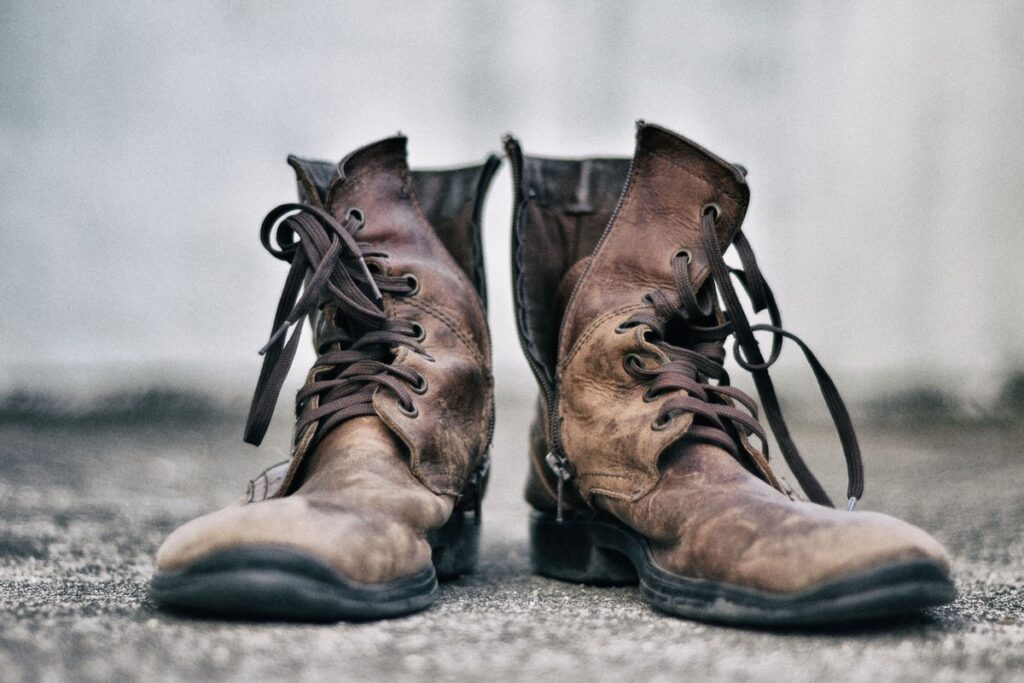
Frugality can be defined differently by different generations.
A lot of second generation Asian Americans (like myself) grew up with immigrant parents who were forced to be frugal in order to survive. They and their parents likely grew up during times of war, famine, or relocation. Immigrant families in the US (including those of European descent) undoubtedly experienced economic hardship during the founding generation(s).
To our grandparents and great-grandparents, frugality meant stretching a bag of rice to last a week. Frugality meant sewing up pants and shoes because they couldn’t afford a new pair, and even then passing it on to younger siblings or relatives before the article of clothing fell into disuse. Frugality meant going without vacations or other luxuries for huge stretches of time at once, just in order to pay the bills.
In other words, frugality meant survival.
Contrast that now with subsequent generations of Asian Americans. Depending on our generational closeness, we may retain similar behaviors of frugality, but now with vastly different economic conditions. Instead of being forced to be frugal, now we have a choice. To us, frugality means buying a $20 pair of shoes or one that costs $100. Frugality is meal prep ping instead of eating out. Frugality means taking a red-eye and two layovers instead of a direct flight.
For many of us today, frugality is conscious decision.
Even as I write this, I’m fully aware that frugality may mean different things to different people.
Do Christians Need to Be Frugal?
So back to the question at hand: “should we as Christians strive to live as simply and frugally as we are able?” What does the Bible say about being frugal? Does Jesus want us to be frugal?

God Teaches Us to Trust Him for the Future
As Christians, one of our highest virtues is trusting in and depending on God.
Many people define frugality as saving money. If that’s the case, what does the bible teach about frugality and saving up money? Perhaps we can look at individual verses like Proverbs 21:20 or Proverbs 6:6-8:
6 Go to the ant, you sluggard;
consider its ways and be wise!
7 It has no commander,
no overseer or ruler,
8 yet it stores its provisions in summer
and gathers its food at harvest.
Many immigrants celebrate this narrative of “working hard” and “storing up resources for the future.” In this Proverb, the ant is applauded for its wisdom in saving provisions.
But as Christians, is saving up for the future always the highest virtue? I think there are many instances where biblical wisdom indicates otherwise:
- The Israelites were given manna only enough for each day in the wilderness (any extra manna spoiled overnight).
- God instructed Israel to observe Sabbath and to rest from work.
- Jesus sent out his disciples and specifically instructed them not to pack a second cloak.
- Jesus teaches us not to store up treasures on earth “where moths destroy and thieves can break in to steal.”
- “Do not worry about tomorrow, for tomorrow will worry about itself,” instructs Matthew 6:34. “See how the flowers of the field grow. They do not labor or spin. Yet if that is how God clothes the grass of the field… how much more will he clothe you—you of little faith?”
There are times to be wise about the future, certainly (God telling Joseph to save up for the famine in Egypt, for example). But as Christians, relying on God (and not our own power to fill our bank accounts) seems to be the greatest virtue.
God Teaches Us to Be Wise With Our Resources
God wants us to be wise with our resources.
Proverbs doesn’t tell us to be idle, twiddle our thumbs, and expect God to provide for the future. The ant in Proverbs 6 works to store up its own food (but notice how only then, on a yearly cycle).
What is Christian frugality really, then? Does it mean we renounce all attachment to material wealth and go live as monks and nuns? Merriam-Webster dictionary offers this as a definition for frugality:
fru·gal·i·ty (noun): careful management of material resources and especially money.
The key phrase here is “careful management.” Ecclesiastes 3 instructs us that there is a “time for everything,” “a time to keep and a time to throw away.” Like the ant in Proverbs 6, there is a time to save and a time to spend. The Israelites are allowed to accumulate wealth in the Old Testament and buy land. They are also instructed to celebrate a Jubilee every 7 years to release all debt and free any slaves.
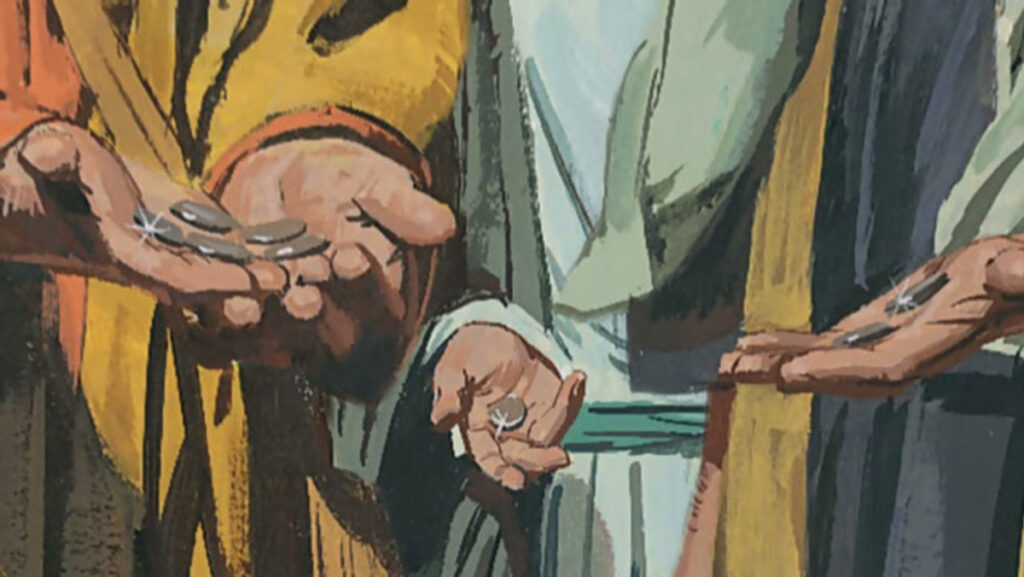
The Parable of the Ten Minas (Luke 19:11–27 or the “Parable of the Talents” in Matthew 25:14–30) explains this best. In that parable, it doesn’t matter whether the servants are given 1, 5, or 10 minas to start with—the king simply commends the servants who are wise in the way they steward their resources. They are commended for their attitude. The faithful servants are the ones who fear God as master and act accordingly.
The Rich Young Fool: Foolish Hoarding
Jesus warns against us “storing up” to the extreme, as exemplified in the parable of the “rich fool” in Luke 12:16-21.
And he told them this parable: “The ground of a certain rich man yielded an abundant harvest. He thought to himself, ‘What shall I do? I have no place to store my crops.’ “Then he said, ‘This is what I’ll do. I will tear down my barns and build bigger ones, and there I will store my surplus grain. And I’ll say to myself, “You have plenty of grain laid up for many years. Take life easy; eat, drink and be merry.”’ “But God said to him, ‘You fool! This very night your life will be demanded from you. Then who will get what you have prepared for yourself?’ “This is how it will be with whoever stores up things for themselves but is not rich toward God.”
Some people are frugal only because they want to save more. (In that sense, a frugal person is just as trapped to the love of money as someone who spends lavishly.) Should Christian frugality be defined not as spending less but about having less? After all, someone can trick themselves into thinking they are freed from material possessions, when in reality they are simply putting treasure into their.
And this is where I think many Asian Americans (and perhaps especially immigrants with an eye towards upward-mobility) experience tension as Christians. We want to save. We want to be generous towards our kids and their education and their experiences. But is it possible that excessive saving with the excuse of “financial security” or “saving for kids” is still an earthly, not a heavenly, treasure?
The Woman With the Alabaster Jar: Beautiful Extravagance
God encourages us to be generous with others because he was first generous to us.
The woman with an alabaster jar teaches an important lesson to those of us who live in a world of cost effectiveness, mental calculations around best value, and optimizing resources.
I’m convicted every time I read the passage of this woman anointing Jesus’ feet with an expensive jar of perfume. Here, the disciples’ reactions often exemplifies my own.
Matthew 26:6-10 While Jesus was in Bethany in the home of Simon the Leper, a woman came to him with an alabaster jar of very expensive perfume, which she poured on his head as he was reclining at the table. When the disciples saw this, they were indignant. “Why this waste?” they asked. “This perfume could have been sold at a high price and the money given to the poor.” Aware of this, Jesus said to them, “Why are you bothering this woman? She has done a beautiful thing to me.
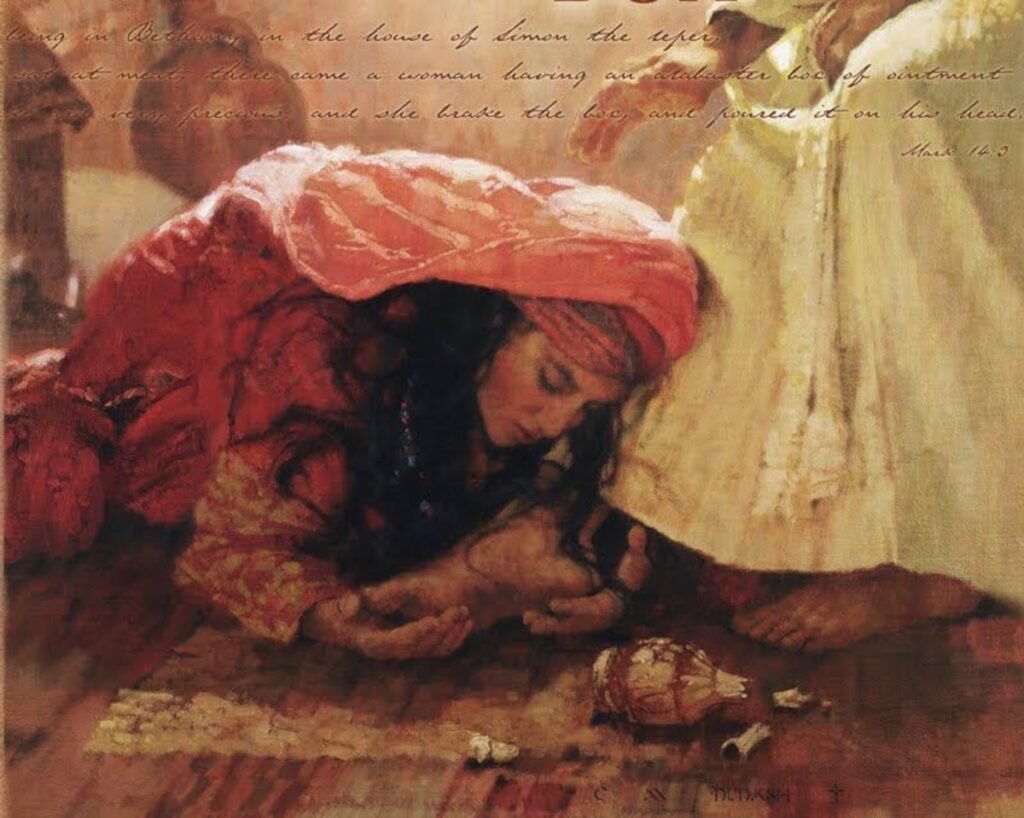
“Why the waste?” the disciples ask.
I ask myself the same question over and over again—often when I’m comparing the costs of different flight options, deciding where to eat, or simply buying household toiletries at the store.
“Why the waste?”
“Is this worth it?”
“Could I get this cheaper somewhere else?”
Like the disciples, I’m often fixated on the “practical” side of things and worry about how much things cost.
Love With Extravagance
As I process my own experiences around money and wealth, I realize that a lot of my thinking stems from being both Asian American (perhaps) and Christian.
You see, growing up I associated spending larger amounts of money with guilt and wrongdoing. Extravagance meant you were concerned with “earthly” and material wealth rather than heavenly wealth. Jesus cared about the poor, so spending more than you needed to was “bad.”
In my head, I had associated “extravagance” with “waste.” Don’t waste food. Don’t buy candy at the checkout aisle when you could purchase in bulk. No cotton candy or funnel cake at the amusement park. Spend less. Save more. Growing up, I had internalized that spending less was always a good thing for me as a Christian, as if it proved that I had less attachment to the material world.
Like the disciples in this passage, the question on my mind was always “How much does this cost?” and “Is it worth it?”
But Jesus tells us that this woman “does a beautiful thing.” She wasn’t thinking at all about the cost of the perfume—she was being present to her Lord and friend. That perfume might have represented her life savings or her family inheritance. Yet, she was more motivated by love than by cost.
And that’s where I stand to learn a lesson as a frugal Asian American Christian. There are times to be generous and extravagant with my spending. There are times to act out of celebration and deep gratitude to God. After all, Jesus drank wine and brought wine—(and not just a single bottle, but six enormous stone jars’ worth!) God gave the Israelites enough for each day, but he also instructed them to feast.
The woman with the alabaster jar reminds me that with God in our presence, our most important duty is to be present to one another, not fixated solely on money. We are not to be lovers of extravagance, but to love with extravagance. Extravagant love often has nothing to due with material cost!
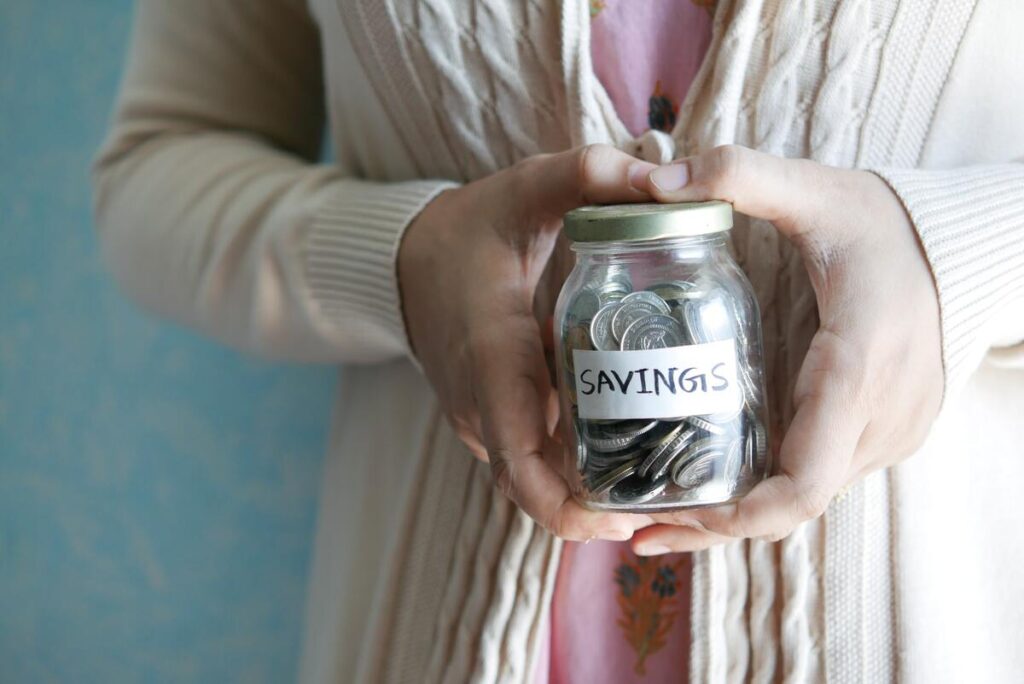
So… Is It Bad to Be Frugal?
Whether frugality means spending less or having less, there is nothing inherently good or inherently bad about being frugal.
You can spend very little and be a faithful Christian. You can spend a lot and be a faithful Christian. Christian identity (or faithfulness) does not hinge on the state of your finances.
What Jesus taught in many of his parables is that the heart behind our actions is much more important. After all, someone can live frugally but still be obsessed with money. Someone can be frugal out of a misplaced faith in themselves and not out of trust in God. Someone can be frugal but still live out of pride and self-righteousness rather than generosity towards others.
Parker Palmer, in his book The Promise of Paradox, explains how our Christians lives are full of paradoxes.
On one hand, Christians are called to be free from earthly treasures. Jesus teaches us that “it is easier for a camel to go through the eye of a needle than for a rich man to enter the kingdom of God.” (But not impossible! That verse is swiftly followed by Mark 10:27, “With man this is impossible, but not with God; all things are possible with God.”)
On the other hand, Christians are called to be generous with our material possessions. We are to give to the needy and share with the poor. God commands us to tithe to remind us that everything is a gift to begin with. The woman with the alabaster jar came to Jesus with very expensive perfume, anointing him with the entire jar in reckless wastefulness, yet Jesus calls her display a “beautiful thing.”

How Frugal Is Too Frugal?
At the end of the day, our patterns of behavior need to be modeled and dictated by God. So how frugal is too frugal?
The kingdom of God has always been characterized by abundance, not scarcity. God’s love for us is lavish and generous, never frugal or stingy. When we focus too narrowly on how much things cost, like the disciples in this passage, we miss out on the more important things in life. The woman pouring the perfume was an intimate and beautiful act of adoration towards Jesus—yet, the disciples totally missed that because they were so focused only on the dollar amount of the perfume being poured.
Imagine this contemporary parallel that Asian Americans may resonate with: imagine saving up and carefully selecting an expensive gift (or planning a lavish vacation) for your immigrant parents to enjoy, only to have them grumpily complain that you “spent too much on them” or that “you wasted your money.” How would you feel?
The point here is that it’s not always about the money. It doesn’t matter whether you spend a lot or little in life. Jesus cares about the heart. We are to be shrewd managers of our wealth possessions, but not over-reliant on frugality.
A few questions to ask yourself:
- Why am I being frugal? (out of fear? out of guilt? out of habit?)
- What is the hidden fear? What is the hidden desire? (A hidden fear might be one of anxiousness or financial security. A hidden desire might be to seem well-off or to feel self-righteousness.)
- How do my actions affect others? (In the case of doting on frugal parents, it’s equally important to remember that you cannot control how others perceive or react to your actions! You can only manage and control your own intentions at heart.)
When Does Frugality Become Unhealthy?
Frugality is a great discipline to exercise. But too much of a good thing can also become a bad thing.
As a second generation Asian American—saving, not spending, has always been the default: splurging on extravagance is okay only if it’s a gift for others and not myself. Spending too much indicates weakness, laziness, or greed. Saving money is an important way to provide for family.
But as I’ve found in my own personal life, excessive frugality can also lead to a lot of things that are decidedly “un-Christian”:
Trap #1: Frugality Can Lead To Self-Reliance
Obsessive frugality can lead to an over-reliance on self. We begin to feel confident in our own management of our finances. Rather than depend on God for “daily bread,” we trust in our own ability to save and provide for the future. Frugality becomes a way we like to feel in control of the situation.
Trap #2: Frugality as a Self-Righteous Activity
Too much frugality can distort our view of material possessions. We internalize that it is “evil” to have or spend money and that we are “good” for avoiding it. Like the Pharisees, we chase after spending very little or having very little as a way to prove our righteousness. In other words, frugality becomes an idol.
Trap #3: Frugality and the Trap of False Comparison
Frugality becomes a competition. You judge others for spending more than you. Or, you feel inadequate when you see someone living more frugally than you. Either way, it becomes a trap where you feel never “good” enough.

Trap #4: Frugality Taking Away Joy
You spend hours agonizing over how to save a few bucks. Or, you do spend money but feel guilty for weeks afterward. Frugality has become an oppressive force in your life if every decision—where to eat, what clothes to buy, when to go out with friends—is determined solely on the basis of cost and efficiency.
Trap #5: Frugality Becomes Guilt
There are times to be frugal and times to be lavish. One danger of excessive frugality is the resultant guilt that comes whenever we do spend money. If we spend our whole lives conditioning ourselves to avoid excess, we lose out on the ability to fully experience times of celebration and feasting.
Trap #6: Frugality Impeding on Generosity
God wants us to live out of abundance and love rather than scarcity and fear. Frugality can morph into stinginess if we start believing that we we have is not enough. When we are tight-fisted with our own resources, it makes it harder for us to be generous toward others.
Trap #7: Frugality Could Conflict With Justice and Mercy

As Christians, it’s important to remember that we lived in a connected world. Cheap deals sometimes comes at the cost of exploitation or unjust economics. We all like to score a good deal every now and then, but what if it come at the cost of someone else’s livelihood or dignity? When we conserve our own resources, we often inadvertently close off resources from someone else.
Is Frugal Living Worth It?
So, is frugality still a biblical virtue? Is it worth adopting a frugal lifestyle?
There’s no right or wrong answer.
A frugal lifestyle needs to stem from the proper motivations. Whether you are a college student, high school teen, a single adult, married with kids, and retired grandparent, everyone will have different needs when it comes to how to manage their money. We should strive to practice a joyful frugality whether we have a lot or a little.
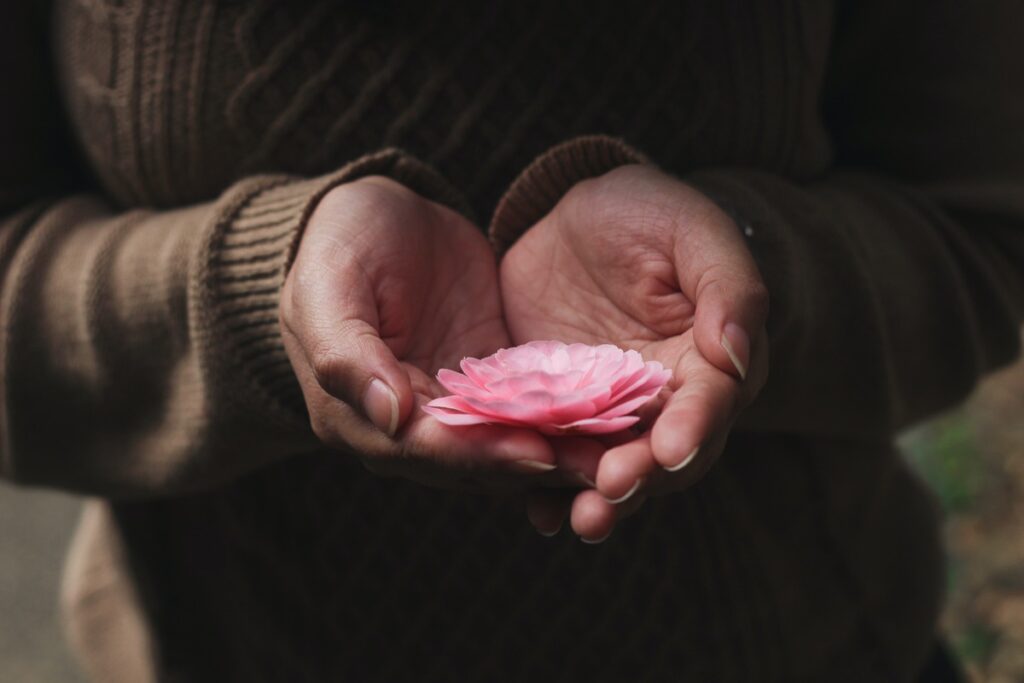
It is important to recognize that we live in a consumeristic age, one where we are constantly bombarded to spend and have and acquire more. In that sense, frugality is a necessary virtue. Jesus clearly teaches us to avoid the love of money.
On the other hand, there are many higher virtues in the Christian kingdom—including generosity, love of justice, and dependence on God. Always calculating or always anxious to part with money doesn’t seem like a very Christian way to live.
As an Asian American who grew up with extreme frugality, and now trying to mature in my understanding of God’s love to me and to others, I’ve learned that God is a loving Father who delights in our joy. Material possessions are for inspiring greater happiness and to share blessing with one another, not to inspire guilt or shame.
There are times to save and times to spend. The story of the disciples fixating on the expensive perfume poured on Jesus’ feet rather than the woman herself reminds me that when we focus too much on the dollar amount of things, it impedes us from seeing other more important things in life.
Frugality is good, but I’d rather more practice these other important virtues—remembrance of God’s lavishness towards us, joyful generosity with others, and a general openhandedness with whatever God has given us.
What do you think? How has frugality played out as either a virtue or a vice in your own life?
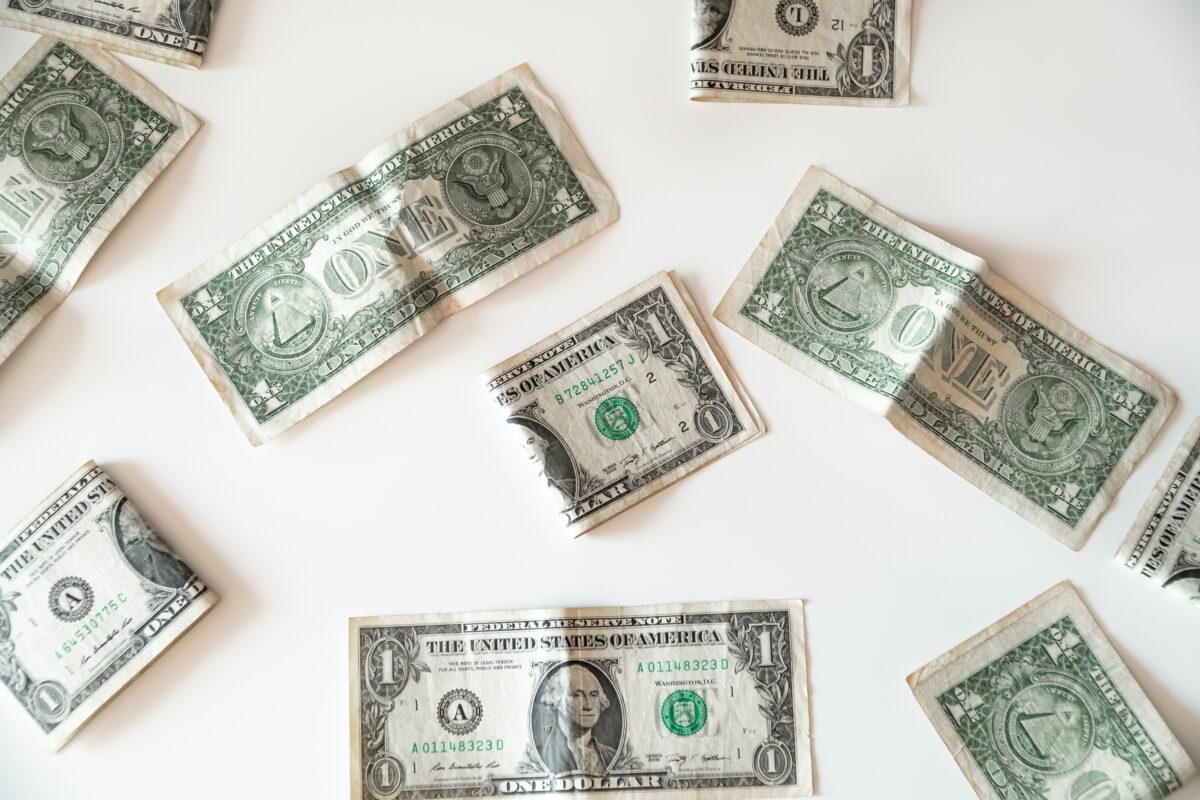
[…] Asian Americans and the Trap of Frugality March 15, 2023 […]
So beautiful! Really reminds me of things that my husband and I learned on a Journey of Generosity Retreat, hosted by Generosity Bay Area. I remember being really struck by similar stories of people realizing that saving can be OVER-saving when done in the spirit of hoarding (fear, anxiety, poverty mindset), rather than actual wisdom and freedom from the grips of money. Thank you for writing such a thoughtful and nuanced post, especially one that really relates to fellow Asian Americans coming from this kind of culture and wrestling with these tensions, too. 🙂
Hi, Andrew,
This article resonated with me — an Irish-American with Asian family members. I, too, have had kitchen cabinets with lots of saved plastic. A friend asked once whether I liked those items or whether I kept them out of guilt (it was guilt/thrift). My Irish ancestors came to the US in the 1800s to escape starvation in Ireland. Then there was WWI, the Great Depression, WWII, etc. So many reasons to save every penny possible. I’m a Christian and I argue with myself regularly about whether to spend or not. Do I need it? Would buying something help someone else keep a job (even though I get something out of the transaction)? I’ve shared your article with friends and family and will return to it when I’m stressed about all of this once again. Thank you so much.